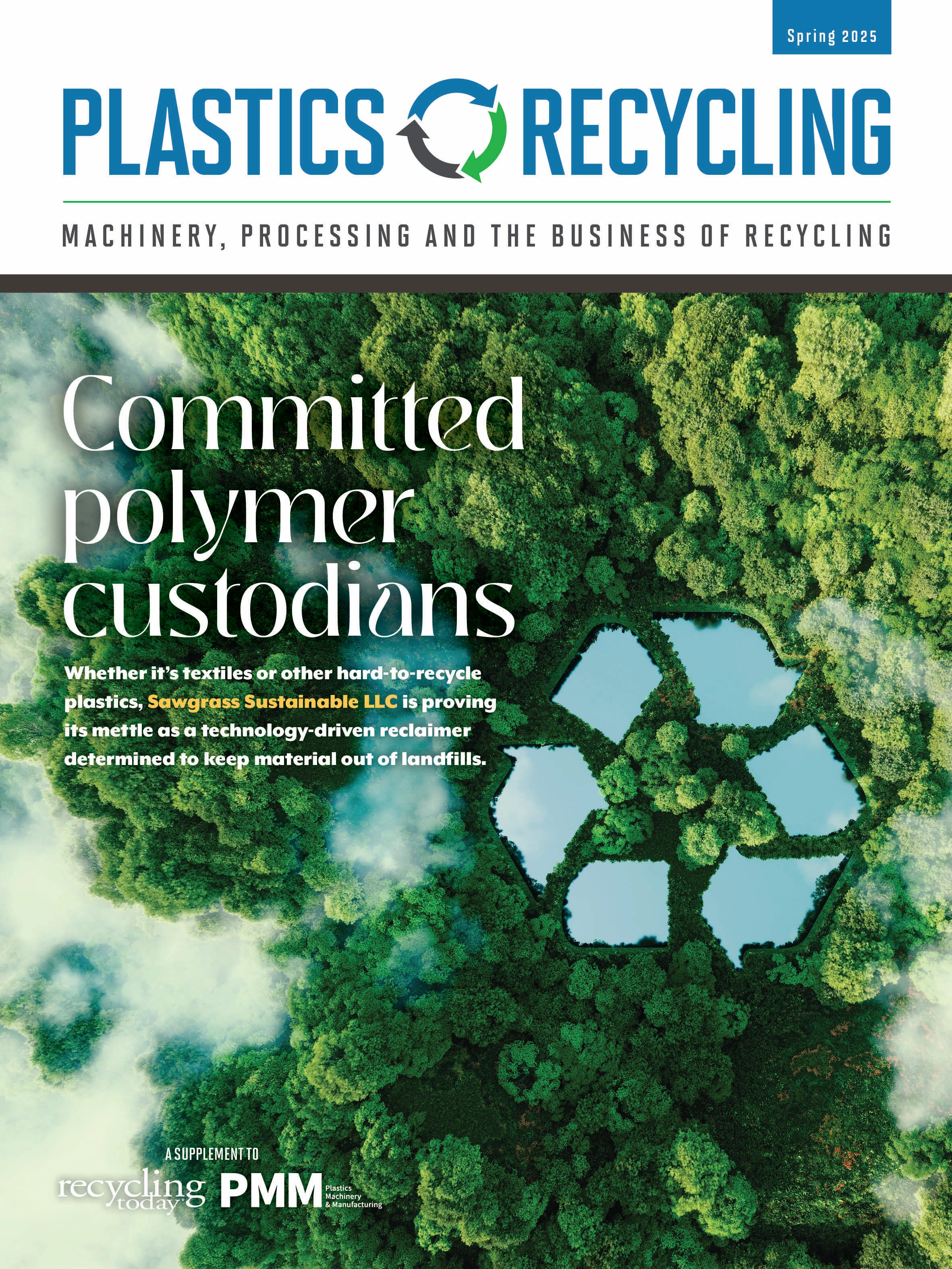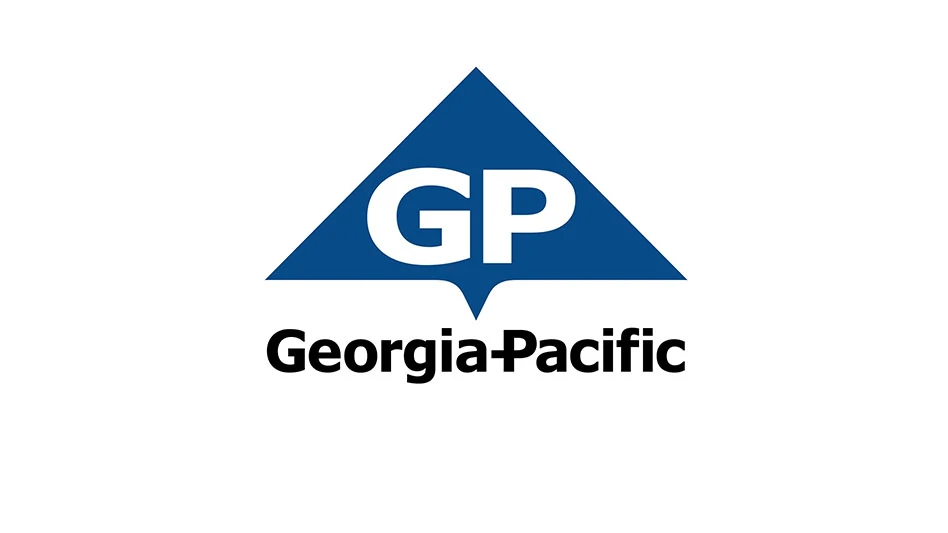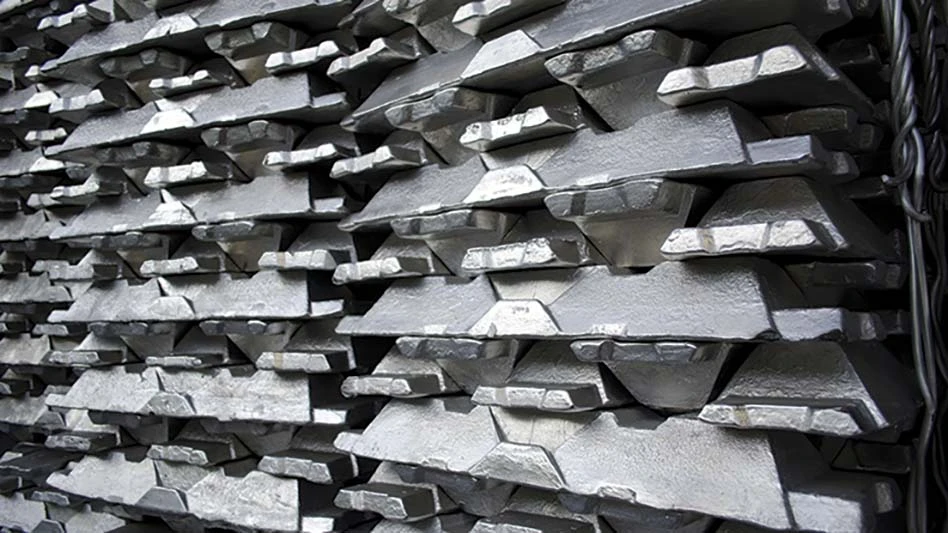
Plastic Recycling Inc. (PRI), headquartered in Indianapolis, has invested $10 million to add two new state-of-the-art extruder systems and upgrade its laboratory equipment, allowing it to compound 200 million pounds of recycled resin per year.
The company seeks to increase its business in recycled resin compounds used in the automotive and electronics industries and recently launched 12 new grades of automotive compounds based on 100 percent-recycled resin.
Finding its place
The 35-year-old compounding company has carved out a substantial niche developing and marketing compounds using recycled resin. Most of those compounds are made from 100 percent-recycled resin, according to Brandon Shaw, the second-generation owner of PRI, who notes the company uses postconsumer recycled (PCR) material.
PRI has approximately 200 employees across its production sites in Indianapolis; Cowpens, South Carolina; and Jefferson City, Tennessee. The facility in Indianapolis operates 10 compounding lines, while Jefferson City has two.
The automotive industry in Europe, which uses more recycled plastics in its parts than in other regions, has provided a road map for PRI.
“The goal is to recreate the European mentality around recycling here in the U.S. to satisfy these automakers’ demands for PCR,” Shaw says.
That means PRI must develop technical compounds with high ratios of recycled resin that are consistent from truckload to truckload.
“If you control the resin streams and have systems to control the formulations and the extrusion process, you can make really high-percentage PCR feedstocks to go back into cars or electronics or even food-grade products,” Shaw says.
Welcome additions
The new machines and pelletizers installed at PRI’s Indianapolis facility are by Celectric Technology and Delco Extrusion of Sesto Calende, Italy. One is a 112-milimeter twin-screw unit and the other is a 200-millimeter single-screw extruder. Total capacity for the two compounding lines is approximately 60 million pounds.
Each extruder has four attached mixing silos—two dedicated to incoming material and two to the finished compound—and each silo has one truckload of capacity. Metalmeccanica Rossi Srl of Forli, Italy, made the 35-foot tall, self-cleaning silos with mixing screws.
BHT Srl, based in Modena, Italy, built the three-stage mezzanine, dosing systems and pneumatic conveying equipment.
PRI buys curbside PCR bales, automotive residue that has been shredded and electronic scrap that is shredded or in bales. Other material comes in bales, or as purgings or discarded parts.
The company has a wash line for postconsumer polypropylene (PP) bales, or No. 5, and says it is the only compounder in the U.S. accepting mixed electronic plastic scrap.
“We put that through different density tanks, shredders, grinders, aspirators, rubber-removal machines and electrostatic separators so we can get pure PS [polystyrene], pure ABS [acrylonitrile butadiene styrene] and PPE [polyphenylene ether],” Shaw says.
Incoming material then is assigned an electronic ID.
“We have full traceability of the material that goes into the silos,” PRI Chief Operating Officer Marco Meloni says, noting it is a key element in developing and repeating specific resin recipes.
Meloni says he previously ran a recycling and compounding company in France that was one of the largest compounders of PP for the automotive industry. He and Shaw met at a K show and kept in touch over several years, and he joined PRI in 2021 when the French company he worked for was sold.
The extruders are fed gravimetrically from a mezzanine.
“While we are using one silo, we are pneumatically loading the other one,” Meloni says. “We never have to stop the machine, even when we change production, and we always have a homogenous flow.”
Recipes for the extruders come electronically from the lab, and the dosing equipment and extruders are set automatically. Dry components of the recipe are mixed in the silo, and liquid components are added at the extruder.
PRI has developed a degassing system for the new extruders and has worked with the extruder manufacturer to develop a devolatization system, continuous filters and pelletizers. Product samples are taken automatically and sent to the lab throughout the production cycle.
Throughput is about 5,500 pounds per hour. The material is mixed for four hours before and four hours after it is compounded, allowing PRI to use a higher level of recycled resin in its compounds, Meloni notes.
“We make a really homogenous blend that we can give to our customers,” he says.
The system can output a full truckload of material, or the company can produce material to be loaded into super sacks or other packages.
One person can monitor both highly automated systems, and Meloni says the material degrades very little as it is compounded.
“It is very simple to make standard products with 100 percent-recycled resin, but it is very difficult to make technical products 100 percent recycled because you lose properties,” he says. “But with these machines, it is quite easy for us to achieve the properties and go to very high ratios of recycled content for very valuable products.”
Working to grow
PRI says it designed the entire system and worked with the Italian machinery and equipment manufacturers to put it all together.
“We are a compounder, and our equipment is at the level of the best compounders in the market,” Meloni says.
PRI was founded on the idea of developing compounded products for a specific end product, but its strategy is moving toward developing a range of products OEMs, or original equipment manufacturers, can choose from. That is the same business model virgin resin makers follow, Meloni says.
“We built this range of products that fits the needs of our customers, like the virgin resin makers do,” he says. “We came up with this following the experience we had in Europe. There, we had 22 grades that were motivated by the car makers for exterior, interior, under the hood and so forth, and these can also be used in other applications.
“This has changed our definition of who we are, our image and our position in the marketplace. Up until now, there was a virgin resin maker, a recycler and then a compounder. We need to be in the middle of all those. … We are now a compounder that uses as material our recycled stream.”
The upgraded lab makes this possible, Meloni says. It is the key to turning the PCR into materials PRI can use in its compounds.
A lot of time and resources go into understanding and preparing the material PRI sends internally to its extrusion department.
“We are able to understand exactly what are the materials we are putting into our recipes, how they behave and the advantages of using them,” he says. “We sell specifications. You cannot order waste based on specifications. You get what you get. We make the specs ourselves. We will do all the testing that is needed to make our spec. We know exactly what we put into a recipe, so, at that point, we are on the same level as the virgin resin compounders.”
PRI acquires PCR from across the U.S. and sells its compounds in the U.S., Canada, Europe, China and Mexico.
“We will probably be looking at South America and Central America soon with some of our automotive compounds,” Shaw says.
General consumer products currently make up approximately 50 percent of PRI’s markets; followed by automotive parts, with about 20 percent of the portfolio mix; food at 20 percent; and electronics at 10 percent. But Shaw expects to grow PRI’s automotive business this year to the point that it makes up about 50 percent of the business.
“A lot of hard work is going to pay off in 2025,” he says. “With our new capacity and new focus, I think 2025 is going to be a pretty good year for us.”

Explore the Spring 2025 Plastics Recycling Issue
Check out more from this issue and find your next story to read.
Latest from Recycling Today
- Cyclic Materials to build rare earth recycling facility in Mesa, Arizona
- Ecobat’s Seculene product earns recognition for flame-retardant properties
- IWS' newest MRF is part of its broader strategy to modernize waste management infrastructure
- PCA reports profitable Q1
- British Steel mill subject of UK government intervention
- NRC seeks speakers for October event
- LME identifies Hong Kong warehouses
- Greenville, Mississippi, launches aluminum can recycling program






